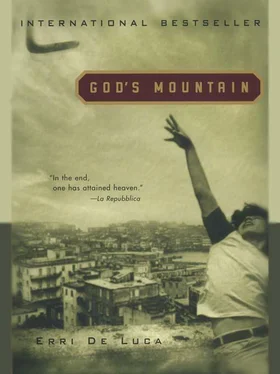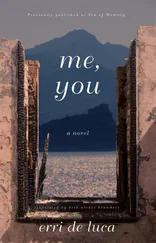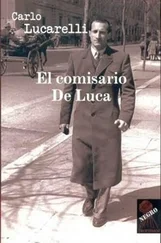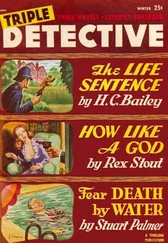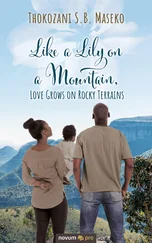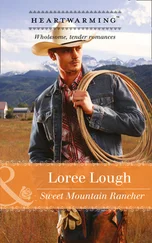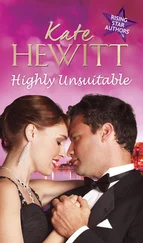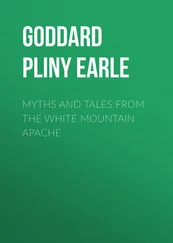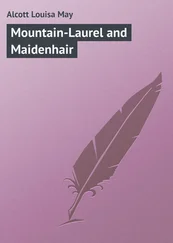AT THE washbasins Maria tells me that the old man came over with some pastries. Her mother went out to buy some coffee and he started up with his begging, saying that if she didn’t come to him he’d die. “So I told him, go ahead, die. A lot of people younger than you die, you can die, too. His face turned from gray to red. He made like he was going to grab me. I ran around the table and he couldn’t get me. ‘You’re mean,’ he said, and started breathing so heavy he foamed at the mouth. Then he stopped, put a hand on his forehead, calmed down, and left. He left the pastries behind and we ate them.” Maria says that he’s dying, that he looked death in the face when she told him to die. All it takes is one word to wipe a man out. Maria knows a lot of things. For instance, she knows that she’s stronger than an adult. I’m scared of adults. She isn’t. She even attacks them. It must be because she’s a girl and she’s known disgust. She’s thirteen and her breasts are growing faster than my boomerang muscles. She lets me touch them. They’re firm. She says, “They’re yours.” My piscitiello gets hard and my mouth waters. She asks if I want her hands. I say no, Maria, don’t do the same things to me you do to the old man. She says okay, you’re right, we should make love, but she tells me in Neapolitan, “Avimma fa’ ammore,” with two m s because that way it’s tougher, more real. And I say we’re already doing it. She says no, she means another kind, the kind where both of us are naked in bed like married people.

IT’S CHILLY at night by the washbasins. The clouds in the sky fan out like a fishbone. To feel warmer I practice harder, doing more turns. The Christmas month is at the door. During the day bagpipers come up to Montedidio. Maria brings a blanket to the roof. We sit on the ground and cover ourselves. When we’re done talking, she pushes her mouth right on me. That’s how we say good-bye. No good nights, no see you laters, no till tomorrows. Nothing. A kiss on the mouth and we’re all right. I practice a little more. Right away the boomerang gets hot. The wood trembles, ready. It slices the air, pushes against the sky. I keep my feet far apart so I won’t lose my balance when I start the release and suddenly stop short the flight of the boomerang. My right and left arms grow at the same rate, like Maria’s breasts. The written part of the scroll gets longer. I don’t read back. I can see that it’s heavy. The part still to go is getting lighter. Maria doesn’t know that writings about her are inside the scroll.
THE LANDLORD came by to pick up Master Errico’s rent. Master Errico saw him coming and said, “Vene chillo che tene.” The keeper is coming. He means that some men work and do things, and others just keep, they’re owners and they don’t do anything. The landlord doesn’t say a thing. He’s feeling low. He’s got the blank look of someone who just got out of bed. Master Errico says nothing except, “good morning.” He pays with the money he has ready. When the landlord leaves he says, “Something’s eating the old man. Greedy as he is, this is the first time he hasn’t counted out the money.” I ask if he’s really so greedy. “Greedy’s not the word for it. He’s got a virgin hand. No one has ever managed to pry his fingers open.” For Maria’s sake I added my own two cents, saying that he was an evil man. Master Errico immediately reprimanded me. “Listen, kid, talk behind someone’s back and their ass will answer you.” I was so embarrassed I slapped myself. Either say it to his face or keep quiet.
THE REST of the day I was thinking about Uncle Totò, whom I never knew. He was killed at noon one day in front of the main post office when an airplane dropped a bomb. Papa was his older brother. When he used to go down to the docks he would take Totò with him as far as the sidewalk on Via Medina, where Totò used to shine shoes. The bomb cut him in two. Papa ran from the docks after the bombing and found Totò at his usual spot. The shoeshine stand remained intact. My uncle was cut in two. It was July. There was dust all over the bodies of the dead and not a single fly. They were dead, too. This detail stuck in my father’s mind and he repeats it whenever he wants to remember Uncle Totò. Every year Papa brings me with him to lay a flower on the common grave. The cemetery is a zoo for the dead. They’re locked up inside. I went with Papa and Mama to the zoo one autumn day. We brought along stale bread. I gave some to the elephant, who took it from my hand with his trunk, so delicately it was like a caress. Papa was happy to hear me say the names of the stranger animals. There was some bread for the hippopotamus, too. I dropped a piece into its open mouth, which was as wide as a closet. Papa collected berries from the eucalyptus, a name he can’t pronounce. He says “calìppeso.” He keeps them in his pocket. He likes the smell and sniffs at them when he’s in the hold of the ship.
THE CAGES have names outside, animals inside, standing there. That’s how they fight back, standing still and refusing to give us any satisfaction. Only the wolf keeps going in circles, out of homesickness and to get some exercise inside the cage. He stares off into the distance, even if there is no distance before him. He’s running around waiting for a hunter, a savior, is what I think. The dead are caged animals, awaiting resurrection. Uncle Totò is a wolf, eager to run far away from Via Medina ever since the day they locked him up. I’m older than he ever was. His life ended before he was ten, one day short of his birthday. He never went to school. That’s why Papa cares so much about education, so that I won’t be held back by the street, so that I won’t be stuck there.

NICE COOL evenings come, buffeted by the wind that ascends the Vomero and San Martino hills and passes over Montedidio before rubbing against the sea. I wait for Maria to come up to the terrace. I practice and look at the sky to find a target. I’ll throw the boomerang, closing my good eye and opening up the bad one so that I can stare into the distance without crying. Later on, Maria and I scour the starry sky, our noses in the air. She says it’s a lid; I say it’s a fishnet, and every star’s a knot. She says that we’re the same height. Even those of us on the ground seem to float in the sky like buoys.
CHRISTMAS COMES. At Maria’s house the creditors knock on the door and make a scene. On the stairwell you can hear the screaming. Her mother won’t open up, her father’s gone out. Papa comes home at six when I warm up his coffee. I drink some, too. He doesn’t say a word. When Mama was around I used to drink coffee substitute. Now he wouldn’t even notice if I started smoking. Grown-ups withdraw into their troubles and leave us behind in houses that don’t make a sound. We only hear ourselves, which is a little scary. The spirits rub against my face in the empty kitchen and soothe me. The boomerang is always against my skin and it warms me. Its wood holds so much heat it must have been grown in a pan of sunlight. Maria bundles herself up against the cold with me and an overcoat. I’m upwind from her so I shield her. Christmas is coming, Maria says. Let’s buy a chicken and cook it. Who needs them. It’ll be the best Christmas of all. I’ll bake some cookies, she says, and plants a kiss on my cold hair. The north wind rains kisses down upon me.

Читать дальше
